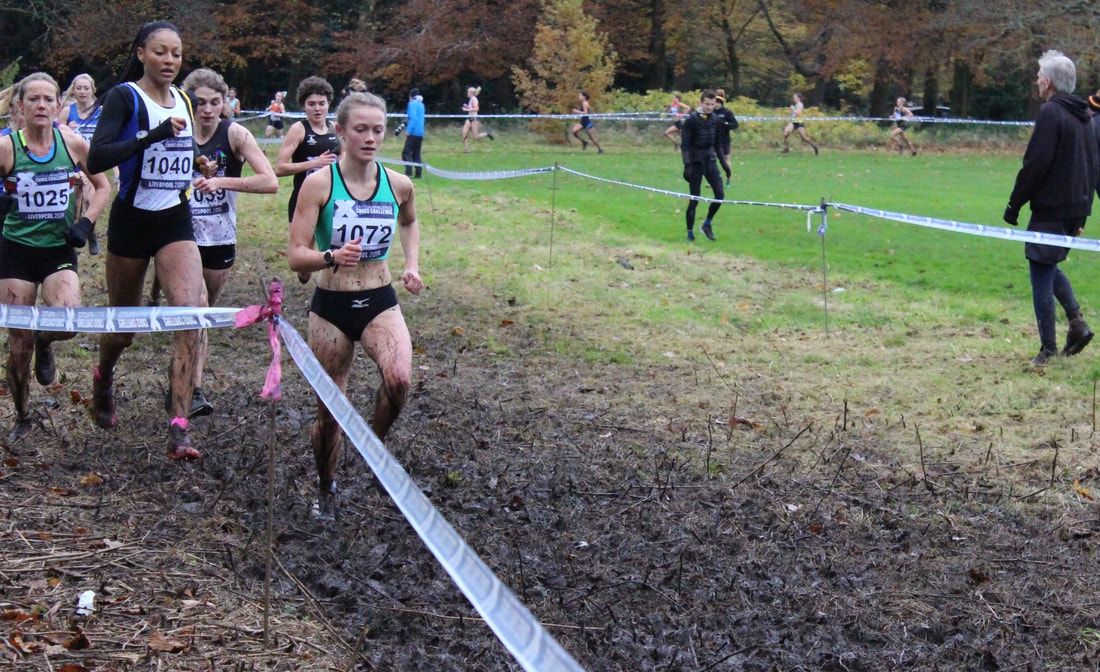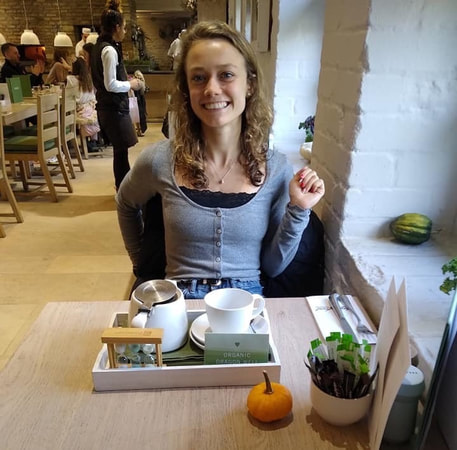|
The concept of a ‘medal mindset’ is brought up a lot by selectors. They believe athletes either have or ‘lack’ the ‘medal mindset’ and this can significantly hinder their chances of being chosen for teams or competitions. The belief behind this mindset, is that only those with it are driven to achieve medals, and therefore only those seen to possess this mindset are selected. But why does this one label denote whether someone does or doesn’t possess the mindset to strive for medals? And why is it believed there is only one mindset that is capable of winning medals? I personally, want to test this idea of the ‘medal mindset’. Firstly, if you ask any competitive athlete if they want to win races and become better and faster athletes, they will say yes. Anybody who pushes themselves daily in order to become faster, strives to better themselves and succeed. I work hard in training and prioritise recovery because I want to become a better athlete, which is undoubtedly a faster, more maturely minded one. Surely, wanting to succeed and become a better version of yourself, coincides with the drive to achieve medals? Just because it hasn’t been point blankly stated that an individual is striving to achieve a medal, why does that suggest they don’t have a medal mindset? Secondly, I personally race my best when passion and enjoyment are my main goals. Yes I want to be the best athlete I can be, but in order to do this I need to be passionate about running and more importantly I need to enjoy it. When I love the sport and my passion for it is present, becoming a better athlete follows. The best races I have run have not been when I have been focusing on a position or a time, but when I have been enjoying the journey and the race I am in. When I am happiest, which is coincidently when I am enjoying running the most, it is much easier to push myself harder and go after my goals with confidence. These goals for many may include winning medals.
This brings me on to the question, is it healthy to purely focus on medals? And is this actually realistic? Yes of course athletes strive to achieve medals, but purely chasing a medal isn’t always going to bring enjoyment or encourage a healthy relationship with running. In order to be a stable athlete, it is important to have more personal goals and not those purely based around medals. Well, this is what I think anyway. Is a medal mindset really a realistic term? Whilst people may strive for medals, are medals really running through their mind on a daily basis? Surely it is the goal to succeed that drives athletes, not medals alone, and this drive for success then leads to medals? And surely this mindset is present in all athletes, as all athletes strive to be the best versions of themselves? Not just those labelled with the ‘medal mindset’. So, what is it that drives you to be the best athlete you can be? And whilst medals may be the ultimate goal, what is it that they represent and what truly makes you race the best you can?
1 Comment
As a runner, a lot of people assume that all my friends are other runners. This isn’t true. One of my best friends doesn’t enjoy running at all and I love that! Yes running is an important part of my life, but it doesn’t take up every part of it, which is important to a healthy relationship with the sport. However, a large majority of my friends are runners, and I love that too! So, why is it that as a runner, I find it so easy to get on well with other runners? Firstly is the obvious explanation. We share a common interest. Running is an easy subject for runners to talk about. Whether it’s about training, other runners, or racing, there is always something else to talk about. As runners, we find the subject exciting and interesting, but the non-running individual, bizarrely, doesn’t find talking about PB’s and sessions exciting. Therefore, it’s only natural that runner’s may gravitate to one another, because not everyone wants to talk about it! A few of my best friends that are runner’s, have similar ways of thinking to me. At times, we think almost exactly the same it can be scary!! Don’t get me wrong, we don’t think identically about everything, but there are similarities in our thought processes and how we deal with different situations. It is these ways of thinking that I believe have developed as a result of running, such as time constraints and needing to fit training in. Due to these similarities and understanding, it makes fitting training in incredibly easy. Amongst runners, there is also a common understanding of the dedication needed for the sport- there is a mutual respect. Other runners understand what it takes to train and compete and the mindset needed for this. The dedication and motivation required to constantly push yourself to be a better runner is something other runners can relate to and therefore help make it happen. Having friends that run also adds a light hearted element to the sport itself. Running can be a solitary and disciplined sport, so a lot of time is spent on your own. Having friends that understand this and can join in on some of your training makes a massive difference. A lonely training session can go a lot quicker if you occasionally have someone to share it with.
However, what makes my friendships with other runners even more special, is the other things that connect us. The other common interests we have. We may have been brought together by running, but away from running we have found so many common interests and enjoyments. Whether it’s the love of food (you can never brunch too much), or the love of books and literature, even the love of animals, common interests unite us all. So, what is it in your life that has brought your closer to other people? This is a post to say thank you. Thank you to all my friends, whether you are runners or not, for all you do to brighten my days and all the pointless, random chats we have together. Because if you know me, you’ll know I do love to chat! About anything!! Plenty of people believe the key to a good core is hundreds of sit ups and a six pack, but why is it really important to have a good core? It isn’t about getting a six pack, as plenty of us, me included, can’t get one no matter how hard we try, but instead the stability and strength it provides us when running. Core exercises help strengthen your core but so does running. I also ensure I incorporate a variation of core exercises, some dynamic and some static, not just crunches and sit ups, as this works all the different areas of your core. Stability Especially now we are in cross country season, having a strong core is extremely important for stability. When I am faced with deep mud and uneven surfaces I need to our upmost to stay balanced on my feet and not fall over. If I have a strong core I am more likely to be able to fight against stumbling and stay upright. Posture I find, having a strong core helps contribute to a good upright body position. Without noticing I find myself learning hunched over. Especially when studying or writing at a desk, it can be easy to adopt a poor body position. I find if I focus on my core and sit upright I am less likely to hunch over my desk. For a long time now, I have always ensured I incorporate core into my training schedule. It is very easy to do and doesn’t take very long, but sometimes it is getting the motivation to do it that is a struggle. Sometimes going to the gym is the best option. If there are other people around you and you are in the gym where there are no distractions it is a lot easier to get on with a good core routine, get it done, and then head home. However, sometimes it is the effort of going to the gym just to do core that can be off putting. This is when it is so easy to do a core workout. You can simply do it in the comfort of your own home, in your room, outside in the summer, or in front of a good tv programme in the lounge. Whatever you find most relaxing and motivating to do core, do it! I personally prefer to do it at home as I can fit it in around other things, or as a break from working. Here are a few of my favourite core exercises. I sometimes add a light weight to make them slightly harder. 1. Sideways Crunch I actually learnt this exercise from a training camp in Lanzarote. You simply lie on your side, place your knees at a 90-degree ankle and crunch up towards the sky, bring your hands either side of your legs. 2. Standard plank raise/lower Adopt a plank position with your elbows on the ground out in front of you and your legs extended out straight. Keep your bum nice and low to ensure you are working your core properly and not straining your back. Then push up onto your right hand, followed by your left, then down on your right and down on your left. Repeat this for your chosen length of time. 3. Rotating plankAdopt the regular plank position, keeping your core strong and your back in a stable, flat position, slowly rotate your hips from one side to the other and repeat. 4. Mountain climberAdopt a raised plank position with your arms extended fully. Bring your right knee round the side to your right elbow, then back to the plank leg position. Do the same on the left side and alternate for your chosen amount of time. 5. Weighted side plankGo in to a side plank position, with your elbow under your arm and your feet resting sideways one on top of the other. Place a light weight on your side and hold for your chosen amount of time. Be sure to repeat it for the same amount of time on the other side.
Something recently brought to my attention that I believe to be so important, is recognising how we cope when things get difficult and ensuring this is productive rather than destructive. It isn’t only running that can be difficult at times, in fact it is usually life in general that poses challenges. So, how do we recognise if these coping mechanisms are constructive or not and how do I cope when life gets too much? Whilst I am still only young, I feel I have learnt a lot about the coping mechanisms my mind automatically puts in to place, and the ones that are actually beneficial to me. I have experienced both positive and negative coping mechanisms and am forever learning how to employ positive mechanisms. In the past I have let negative coping mechanisms rule me. It is difficult to realise at the time that these will never help me into the future, but I have come to recognise them before they happen and stop them. Controlling what I eat.One of the mechanisms my mind would adopt when I felt stressed and out of control in the past, was to control what I ate. When I felt as though life was not unfolding as I wanted it to and there was nothing I could do to change it, I would resort to the one thing that made me feel like I had my life together, and that was controlling food. Whilst at the time this may have felt like a good way for me to cope with the stresses going on in my life, it wasn’t, and it only added to the negativity I was experiencing. It was all part of a vicious cycle. I would control what I ate in order to feel happier, but how can you be happy when you are constantly hungry?! It’s just not possible. Had I known at the time that a few years down the line it would cause me to get injured and not run for a year, I wouldn’t have done it! It’s our inability to see the danger our present actions can have on our future, that is scary. Running.Whilst running is a god send at times of difficulty, it can also be a sin. As athletes we thrive off being challenged and pushing ourselves to the limit. Therefore, when we are experiencing stress, our tendency is to push ourselves even harder and run for even longer. It’s a form of punishment without even realising it. When we are stressed our ability to recover and repair well whilst seeing training in a rational light, is inhibited. Therefore, running for me can’t always be a mode of relieving stress as that is when I overdo it. Shutting off and dwelling.This way of coping is one I find myself doing without even realising. When you are feeling low it can be easy to shut yourself off, however, this doesn’t really help us feel better. I have found myself in the past spending too much time on my own when I don’t feel happy, but this only makes me feel worse. The more time I spend on my own, the more I dwell and overthink. This too becomes a vicious cycle as I become so caught up in my own thoughts that I can become negative. Once again, I am punishing myself for feeling down, rather than doing things that will genuinely make me feel better. More recently I have become better at recognising when I need a positive boost to make myself feel better. I have learnt not to punish, but instead look after myself when I am feeling down and fragile. It is important to recognise when you feel your mind enforcing destructive coping mechanisms on top of you and act to enforce positive ones. More awareness needs to be made to help people see there are other ways to cope that aren’t destructive to us. This is what I do when I am feeling down. Go home.As a university student, there is this huge stigma that we should be strong on our own and be able to cope independently. But, who is to say this is the case? I’m more than happy to admit that I still need my home and as I remind my mum, I haven’t left home yet!! Something that never fails to ground me and remind me of what is important, is going home. Whether I’m there for 24 hours or a couple of days, it does me the world of good. Living on your own is difficult, there’s no denying it! Why should I punish myself and not go home because it’s what I ‘should’ do? If going home allows me to refresh and stay on the straight and narrow, so be it. There’s no embarrassment to it! Plus, I can have a long relaxing bath! Enjoy the outdoors.Spending time outside, not running but instead walking or sitting, can be immensely powerful. It is very peaceful to watch the natural world go by. It allows me to ground my thoughts and be present in the moment. Some may say it’s even a form of meditation. I love going on walks with my dogs as it gives a purpose to the walk and switches my mind off from whatever is stressing me. Catching up with friends.There is no point shutting off from the outside world and those who care about us when we are feeling low. I have been guilty of doing this in the past and it definitely doesn’t make me feel better. Now, I love to catch up with friends over tea, or brunch, or have them round to cook dinner together. Catching up with friends doesn’t have to be fancy, especially if you’re like me and hate clubbing. I love having movie nights with my friends where we can chill and chat. There is no need to do things you don’t enjoy, ask if you can do a more relaxing activity.
Ultimately, we need to look after ourselves. There is no point employing coping mechanism that are destructive and punishing. We need to be kind to our minds when they are finding life difficult. |
Hannah IrwinI love to run and I love to write, so I write about running! Archives
March 2023
Categories |









 RSS Feed
RSS Feed
